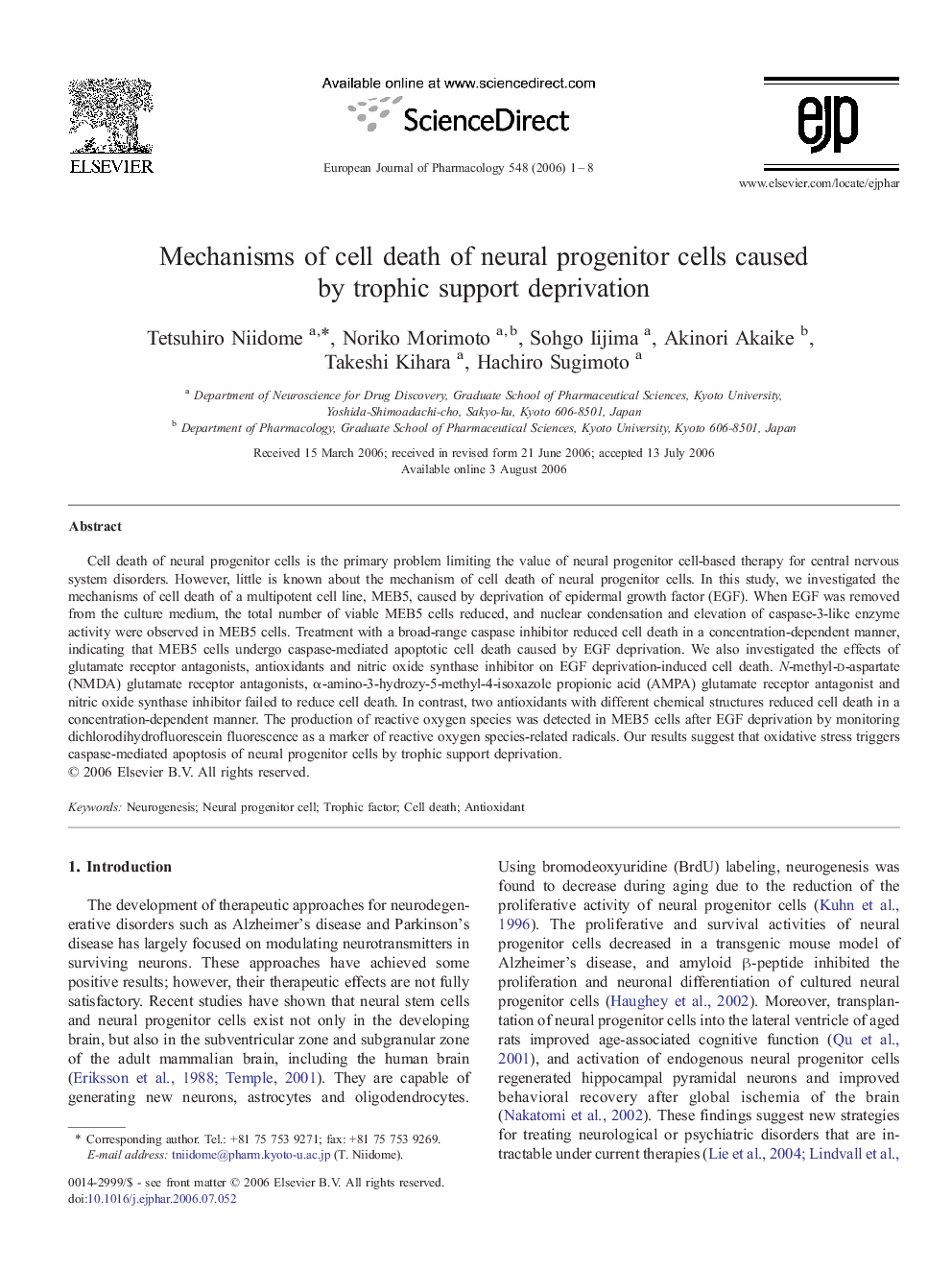| Article ID | Journal | Published Year | Pages | File Type |
|---|---|---|---|---|
| 2536811 | European Journal of Pharmacology | 2006 | 8 Pages |
Cell death of neural progenitor cells is the primary problem limiting the value of neural progenitor cell-based therapy for central nervous system disorders. However, little is known about the mechanism of cell death of neural progenitor cells. In this study, we investigated the mechanisms of cell death of a multipotent cell line, MEB5, caused by deprivation of epidermal growth factor (EGF). When EGF was removed from the culture medium, the total number of viable MEB5 cells reduced, and nuclear condensation and elevation of caspase-3-like enzyme activity were observed in MEB5 cells. Treatment with a broad-range caspase inhibitor reduced cell death in a concentration-dependent manner, indicating that MEB5 cells undergo caspase-mediated apoptotic cell death caused by EGF deprivation. We also investigated the effects of glutamate receptor antagonists, antioxidants and nitric oxide synthase inhibitor on EGF deprivation-induced cell death. N-methyl-d-aspartate (NMDA) glutamate receptor antagonists, α-amino-3-hydrozy-5-methyl-4-isoxazole propionic acid (AMPA) glutamate receptor antagonist and nitric oxide synthase inhibitor failed to reduce cell death. In contrast, two antioxidants with different chemical structures reduced cell death in a concentration-dependent manner. The production of reactive oxygen species was detected in MEB5 cells after EGF deprivation by monitoring dichlorodihydrofluorescein fluorescence as a marker of reactive oxygen species-related radicals. Our results suggest that oxidative stress triggers caspase-mediated apoptosis of neural progenitor cells by trophic support deprivation.
